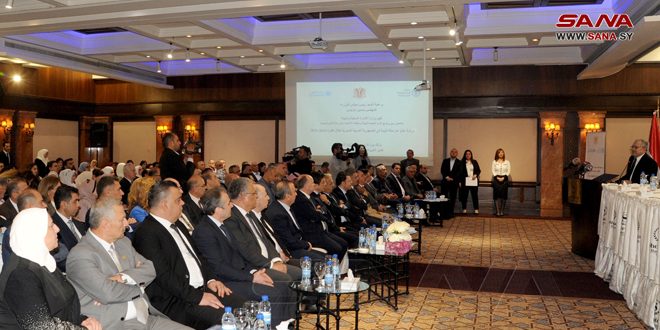Damascus, (ST) – A workshop on the report on the state of the environment in Syria was launched on Wednesday in the presence of Prime Minister Hussein Arnous. The workshop was organized by the Ministry of Local Administration and Environment in cooperation with the United Nations Environment Program and the Food and Agriculture Organization of the United Nations.
In his speech during the opening, Arnous stressed that the state has paid great attention to environmental issues within its development plans, policies and national strategies, as environmental sustainability is one of the strategic goals stipulated in Syria’s vision for 2030. He added that the state has placed among its goals the preservation of the environment and its natural components, protection and development, and the reduction of pollution and the enhancement of the basic components of quality life.
The Prime Minister considered that the biggest problem facing the environment is related to the misuse of natural resources and the depletion of their basic components. He stressed that there is an urgent need to monitor the problem, evaluate its dimensions, and analyze its repercussions in the light of the connection between environmental issues and the policies adopted by countries to protect these resources and rationalize their uses.
Arnous said: Today’s workshop is being held in the light of a world in which environmental issues have become of highest priority for countries and societies, especially the effects of climate change, which have occupied and continue to occupy the minds of those concerned with environmental affairs all over the world, and in Syria in particular.
Arnous pointed to the importance of research and innovation to confront the environmental challenges facing Syria in particular and the world in general, which is what should be worked on for optimal investment of natural resources to ensure their sustainability, reduce sources of pollution, adapt to climate change, address land degradation, and combat desertification and dust storms.
This can be done by taking advantage of modern, environmentally friendly technologies, exchanging knowledge and experiences, building capabilities, and setting controls and standards that enhance environmental sustainability, he pointed out.
Raghda Sawas

